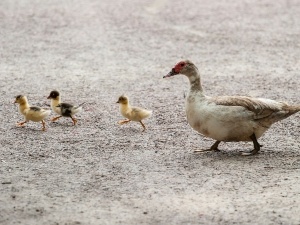
Birds are quite attentive parents, they sit on and incubate their eggs for weeks, they make special crop milk for their baby birds and, they are very protective over their babies when predators come around.
So, what do birds do when their babies die? Many would think that the parents would mourn, but do they? This article looks into it
If a baby bird dies in the nest, then the adult birds will get rid of it and will carry on with their lives.
Table of Contents
What do birds do when their babies die?
The circle of life can be quite cruel. On one hand, predators need to feed themselves, as well as their cute cubs, in order to survive. On the other hand, predator food is usually small adorable animals like birds and baby birds.
If a baby bird is killed or dies for any other reason, here is how the parents will react:
They get rid of the bird:
When a baby bird dies in the nest its body starts to decompose, this is not good for the rest of the birds in the nest. This decomposing baby bird body will attract insects as well as scavengers to the nest.
Insects and scavengers can attack and kill the remaining birds, especially the babies. For this reason, a parent bird will have no choice but to get rid of the dead baby bird in order to preserve the rest of the family.
The dead bird will be buried, by the parents, at the bottom of the nest under all the nesting material. The dead bird’s body will be trampled on by the parent birds as well as by the other baby birds in the nest.
After a little while, the baby bird’s corpse will lose fluids and dry out preventing insects and scavengers from being attracted to the nest.
If the birds are carrion birds, like crows, then the birds will eat the dead baby bird.
The adult bird may also push the dead baby bird outside of the nest. This is another way of getting rid of the baby bird’s body which would otherwise attract scavengers and insects.
If you find a dead baby bird at the bottom of a tree or bush, then this is likely what happened. Predators who happen to pass the baby bird will likely eat it.
They continue with their life:
Raising a clutch of baby birds is hard enough, mourning a baby bird wouldn’t be helpful to parent birds. If a baby bird dies, the adult birds will simply go on with their lives and keep raising the rest of the clutch.
If the parent birds were to stop and mourn their dead baby bird over a long period of time, then this will negatively affect their lives and the lives of their still-growing clutch.
As a matter of fact, losing a baby bird can be a sort of relief for the parents because this means that they have one less bird to raise.
Some bird parents will kill one bird if they have too large a clutch, losing one bird won’t be too devastating to the birds.
If they did lose a baby bird, and then mourn the baby, they would likely drown in sadness and wouldn’t be able to go on
Lay another brood:
If it’s possible, if there is an abundance of food in the area, and if the birds are able to, then the birds will simply hatch another brood of birds.
Most birds have only one mating season a year, the period when the birds are receptive to the act of copulation may only last a week or two. In this case, these birds will not be able to create a new brood if the mating season has passed.
Other birds, like pigeons, can lay year-round and will be able to replace their brood any time they want
What about dead eggs?
Birds instinctively know when their eggs are dead or alive, the birds may get rid of the dead eggs or, they may simply leave the eggs in the nest.
If adult birds do get rid of their dead eggs, they will get rid of the eggs by pushing them out of the nest.
Other birds will eat their dead eggs.
If you enjoyed this article then you may also be interested in other bird related articles. Here are some articles that you may be interested in: Bird Wheezing After Flying, Bird Panting With Mouth Open,

